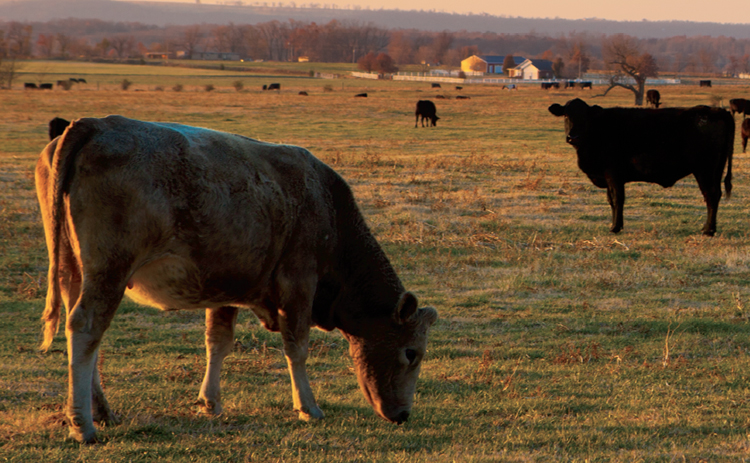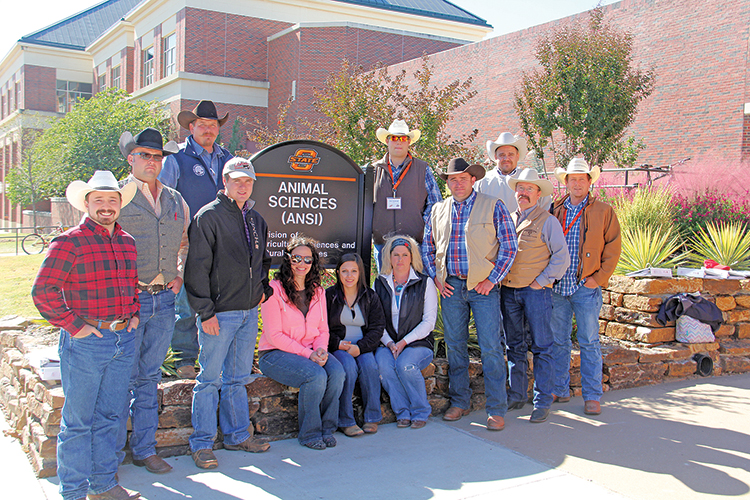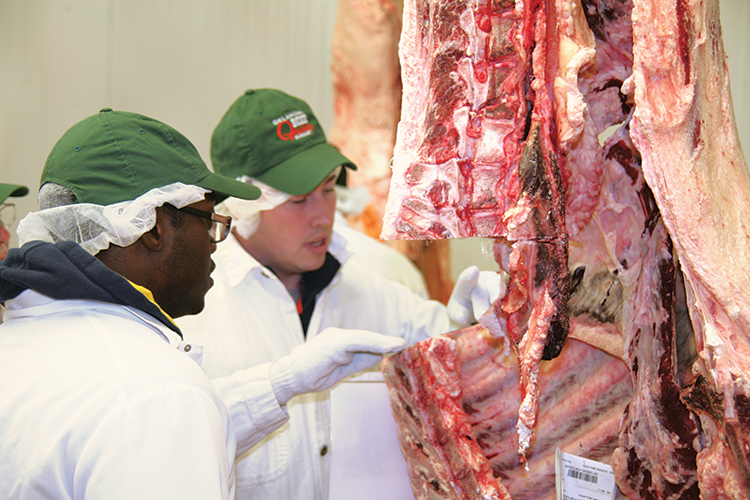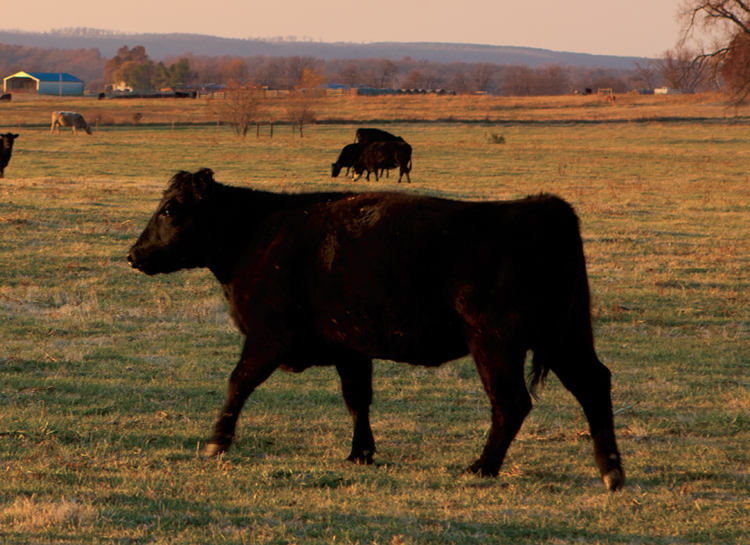Home > Arkansas > Arkansas Ag Education > Class is in Session for Arkansas Young Cattlemen
Class is in Session for Arkansas Young Cattlemen

To position themselves for success in the Arkansas beef industry, Blake and Jessica Walters figured it was time to return to school.
The young couple’s parents and grandparents have raised cattle on small tracts of land, and both Jessica and Blake have agriculture business degrees in animal science. They bought a home on about 30 acres in Blackwell not long ago, with the idea of eventually stocking cattle and expanding their beef operation beyond what they’re doing on their parents’ farms.
That’s where the Young Cattlemen’s Leadership Class (YCLC) came into play. Launched in 2011 by the Arkansas Cattlemen’s Association (ACA), the YCLC is a yearlong program broken up into four working sessions and a fifth session for graduation ceremonies. It is designed to give young cattlemen a comprehensive look at the industry and to mold new leaders for the ACA and other organizations.
“It’s not only for participants to become better producers, but also to help them become better leaders in the beef industry,” says Adam McClung, the ACA’s executive vice president. “It exposes them to so much information over the course of a year, plus the networking opportunities they get. We’ve seen a lot of leadership step up that I don’t believe would have been there without this program.”

Sessions Pay Off
The Walters were certainly impressed. Jessica applied first, and she completed the program in 2014. She highly recommended that her husband go through it as well, so he participated in the 2015 sessions.
“It definitely met my expectations,” Jessica Walters says. “I had heard a couple of things about it, so I was excited to go through the different classes. They were a lot of fun and very educational.”
She says the fourth session had the most impact on her. Students attend the Oklahoma Beef Quality Summit at Oklahoma State University, taking a three-day course on meat science and the beef industry and learning the harvesting and fabrication process.
Blake Walters was particularly influenced by the numbers and the statistics of the industry.
“With the economic side, there are a lot of things out there you don’t normally think of,” he says. “Plus, I found the media training very valuable. It gives a lot of good information on the industry and also good statistics on how people view the beef industry. You see some of the misconceptions people have about agriculture and animal production.”

Leadership Class, to learn butchering and about the retail cuts of meat.
A Home Run
The ACA receives 50 to 60 applicants for the program each year, and a selection process narrows the enrollment to around 15 class members.
The opening session occurs early in the year, and serves as an introduction to the industry and a way for participants to get to know each other. They also visit the state legislature when it’s in session.
A second session in May is built around commodity, finance, risk management and feed, giving class members information on resources they have in Arkansas. They tour the Little Rock Port to observe how commerce moves down river, and also visit a feed mill.
Participants are taught to be beef advocates in the YCLC’s third session in September, learning various facts about the industry and being trained as spokespersons by getting in front of cameras and doing interviews.
The fourth session in October takes class members to Stillwater, Okla., for a crash course on butchering, cuts of meat and quality assurance. They return in December to receive their certificates at the ACA’s final board meeting.
“We’ve hit a home run on this,” McClung says of the program. “Not only is it going to benefit the Arkansas cattlemen with resources that help their operation, but with agriculture being the No. 1 economic impact in Arkansas, it helps our state.”




